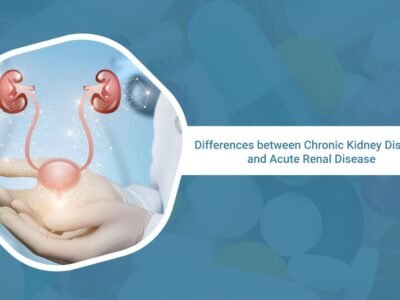As far as ensuring good kidney health is concerned it is very vital to have a good knowledge of kidney function tests. These tests are objective and not guesswork about how well the kidneys serve you. Let’s get into specifics.
Kidney function tests refer to either urine or blood tests that evaluate how efficient the kidneys are in filtering waste and equilibrium in your body. They measure largely glomerular filtration rate (GFR). This determines how effective your kidneys are at clearing waste out of your body.
What Do Your Kidneys Do?
Your kidneys—the unsung heroes of your urinary system—sit posteriorly in the abdominal cavity just below the ribcage. They sift through the blood and throw away its wastes in the form of urine. In addition to that, what most people don’t know is that kidneys are also important for;
- Blood Pressure Maintenance: They secrete hormones necessary for maintaining blood pressure at normal levels.
- Red Blood Cell Production: They tell your body to produce more red blood cells.
- Bone Health: They activate vitamin D needed for strong bones and muscles.
What Are Some Reasons Why You May Require a Kidney Function Test?
Kidneys are messed up by some diseases, which is why there are kidney function tests. When you have diabetes or hypertension, these tests assist your doctor in monitoring your kidney condition. Additionally, you might require an examination if you’re displaying the following symptoms of kidney disease:
- Blood in urine (hematuria): This is indicative of any number of issues from kidney stones to infections or even cancer.
- Painful urination (dysuria): It usually means that one has an infection or inflammation in the urinary tract.
- Frequent urge to urinate: signifies an infection perhaps or a chronic disease such as diabetes mellitus.
It’s hard to start peeing; this can be an indicator that a man might have a blockage in his bladder or prostate problems affecting him.
Types of Kidney Function Tests
One or more types of kidney function tests may be requested by your healthcare provider and they may include the following:
Blood Tests
- BUN (Blood Urea Nitrogen): It measures the nitrogen levels that result from the breakdown of proteins in your blood. However, factors like dehydration or a high intake of protein can also cause increased BUN levels.
- Estimated GFR: It is computed by considering protein levels, age, sex, size and race to assess how efficiently your kidneys are filtering waste materials. Lower GFR values indicate impaired kidney function.
- Serum Creatinine: It is used to test the level of creatinine in blood which is basically a waste product resulting from muscle breakdown. Increased creatinine levels may imply reduced kidney function.
Urine Tests
- Microalbuminuria: It detects albumin, a particular protein indicating early damage to kidneys. Any trace amounts of albumin in urine could be an indication for further investigation.
- Urinalysis: This test checks your urine for blood, proteins and other signs of kidney functioning. It helps identify many different conditions including bladder infections and chronic renal failure among others.
Test Details
What Happens During a Kidney Urine Test?
A 24-hour urine test is typically done at home. Here’s how it works:
- Urinate normally when you first wake up, then start collecting urine in a container provided by your healthcare provider.
- For the next 24 hours, collect all urine in the container.
- On the second day, include your first urination of the morning.
- Drop off the sample at your provider’s office or a lab.
This test helps measure how much urine your kidneys produce and how much protein leaks into your urine over a day, which can indicate kidney damage.
What Happens During a Kidney Blood Test?
For a blood test, you’ll visit your provider’s office or a lab:
- A technician will use a small needle to draw blood from a vein, usually in your arm.
- The sample is sent to a lab for analysis.
This test measures waste products like creatinine and urea in your blood, providing a snapshot of your kidney function.
Results and Follow-Up
When Should You Know the Results of a Kidney Function Test?
How soon you get your results can vary. Sometimes, your provider will have the results the same day. Other times, it might take a few days if the sample is sent to an external lab.
What Do the Results Mean?
Kidney function test results give you a clear picture of your kidney health:
- GFR: A GFR of less than 60 could indicate kidney disease.
- Urine Albumin-to-Creatinine Ratio (UACR): A UACR of more than 30 milligrams per gram could be a warning sign of kidney disease.
These tests can help detect kidney issues early, allowing for timely intervention and management.
What If Your Test Results Show Early Kidney Disease?
If your results are abnormal, your healthcare provider will discuss treatment options with you. This might include medications to manage blood pressure, lifestyle changes to protect your kidneys, or referrals to a nephrologist. Regular follow-up tests will help track your kidney health and any underlying conditions.
Alternatives to Kidney Function Tests
While standard tests are reliable, there are alternatives your doctor might consider depending on your situation:
- Imaging Tests: Ultrasounds or CT scans to view the kidneys’ structure. These can help detect blockages, stones, or tumours.
- Biopsy: Taking a small sample of kidney tissue for closer examination. This is usually done if there’s a need to diagnose a specific kidney disorder.
- Cystatin C Test: Another blood test that can provide more accurate estimates of kidney function in some cases, especially in people with higher muscle mass.
Preventing Kidney Disease
To keep your kidneys in top shape, follow these tips:
- Stay Hydrated: Drink plenty of water to help your kidneys flush out toxins.
- Healthy Diet: Eat a balanced diet low in sodium and processed foods.
- Regular Exercise: Maintain a healthy weight and keep your blood pressure in check.
- Avoid Overuse of Painkillers: NSAIDs and other pain medications can damage your kidneys if used excessively.
- Regular Check-ups: Especially if you have conditions like diabetes or hypertension, regular monitoring is key.
Cost Considerations
Kidney function tests are generally covered by insurance, but without coverage, costs can vary. Blood tests can range from ₹500 to ₹2,000, and urine tests might cost between ₹200 to ₹1,000. It’s always best to check with your provider for detailed pricing.
Conclusion
Kidney function tests are your frontline defence in monitoring kidney health. These tests help catch issues early, ensuring you and your healthcare provider can take action before problems escalate. Kidney Specialist in Ahmedabad Dr. Ravi Bhadania, an expert on kidney health, stresses that Regular testing, especially if you have conditions like diabetes or high blood pressure, can keep your kidneys functioning well.


